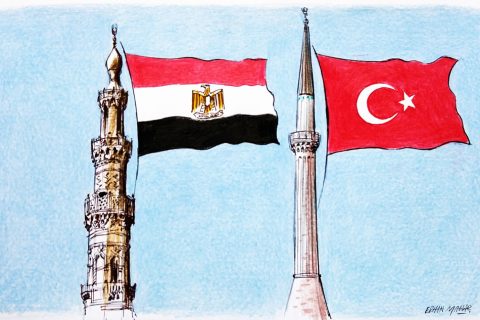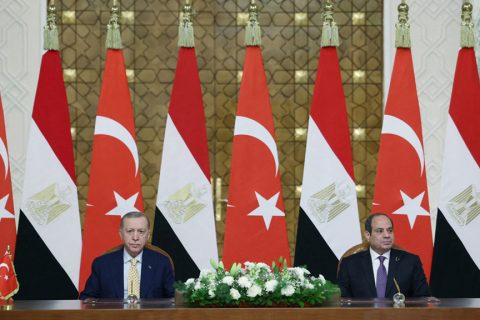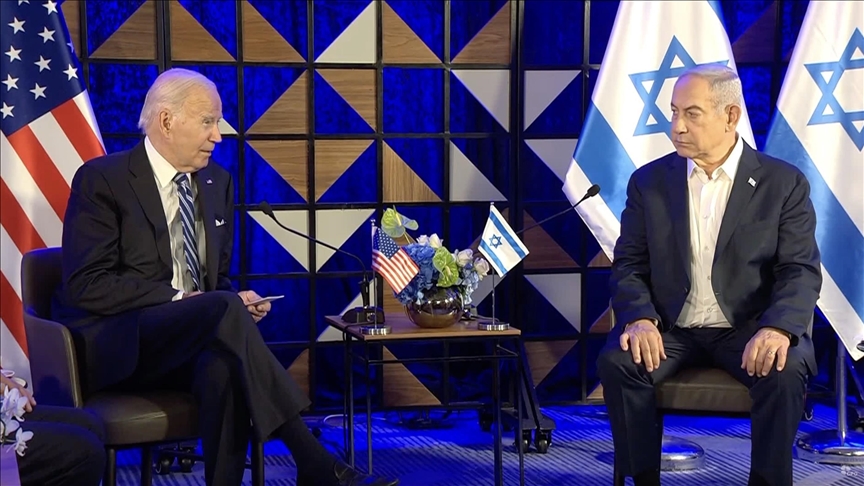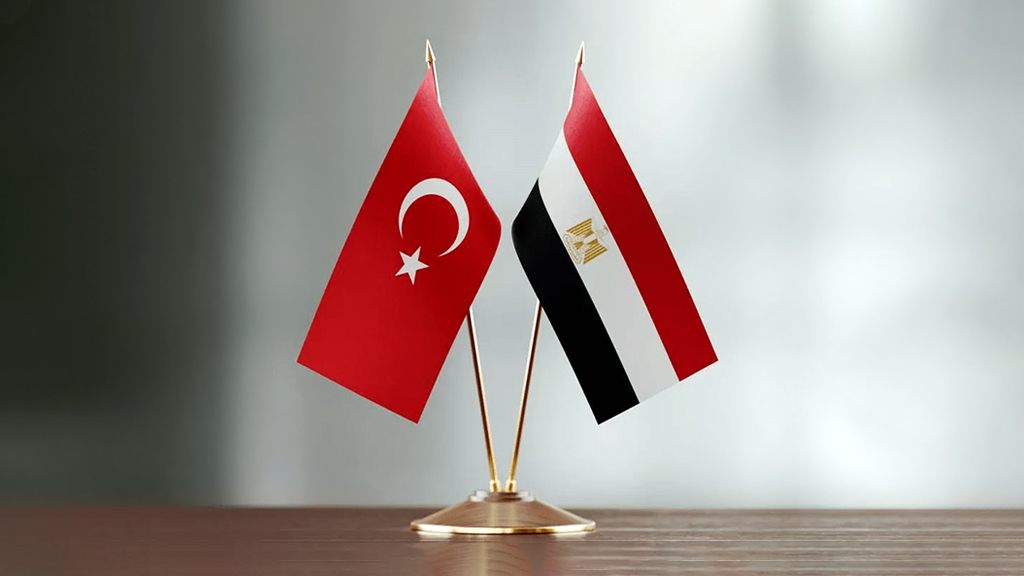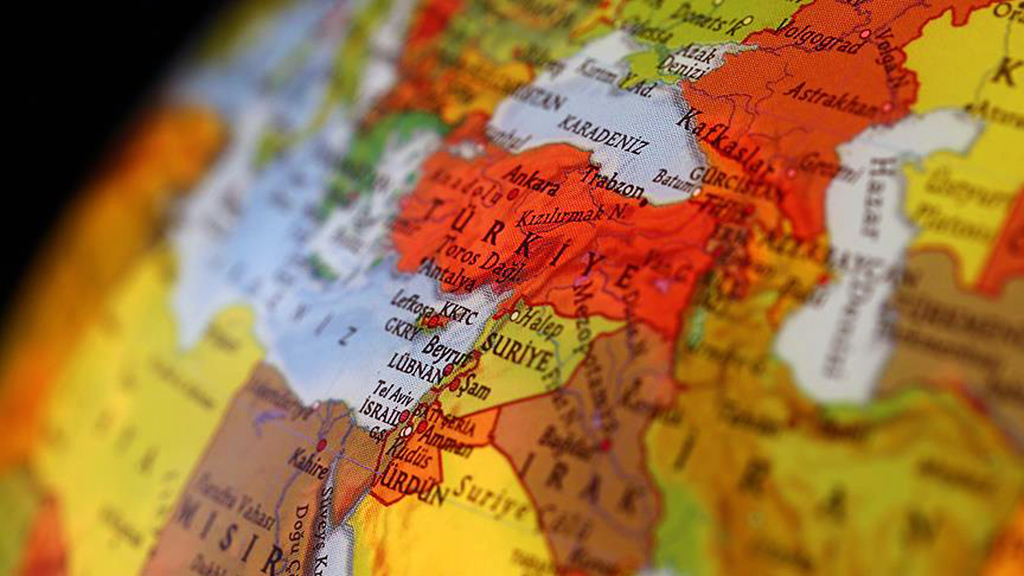Abdel Fattah el-Sisi
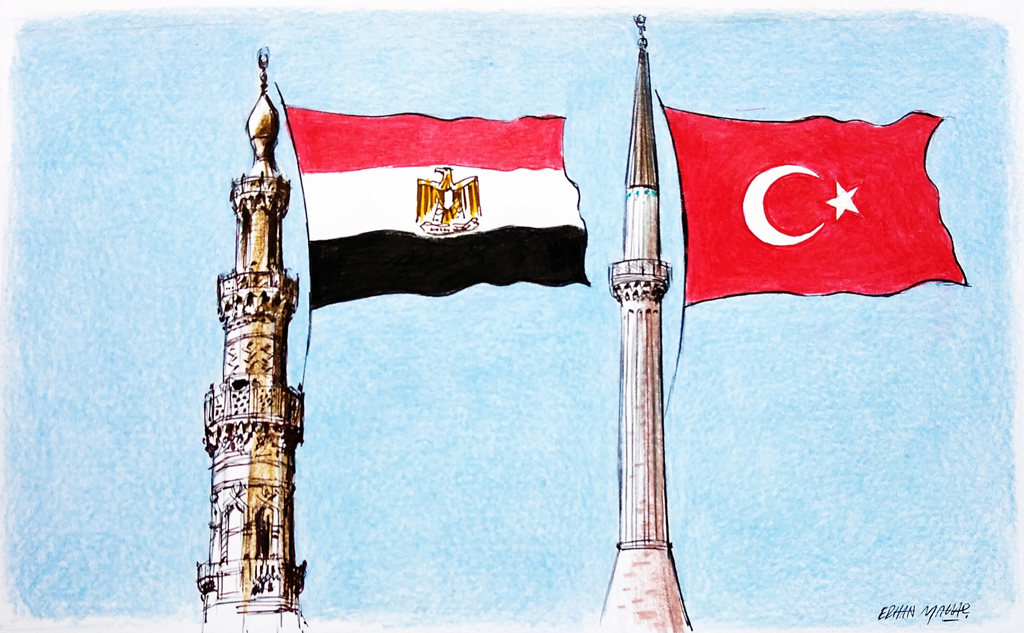
Türkiye’s diplomatic normalization efforts to yield key alliances
| OpinionPresident Recep Tayyip Erdoğan’s visit to Egypt marked the completion of yet another stage in …
-
Opinion
Türkiye’s diplomatic normalization efforts to yield key alliances
By Burhanettin DuranPresident Recep Tayyip Erdoğan's visit to Egypt marked the completion of yet another stage in Türkiye's normalization policy. The two countries thus agreed to brush aside their 12-year disagreement in an attempt to join forces anew. There is little sense in bringing up past statements to talk about concessions and U-turns.
-
Opinion
Türkiye-Egypt normalization: Historic milestone in bilateral ties
By Murat YeşiltaşTürkiye and Egypt stand at a pivotal historical moment in the evolution of their bilateral relations. Following 12 years marked by rivalry and conflict, the visit of President Recep Tayyip Erdoğan to Egypt has the potential to open a new chapter in Ankara-Cairo relations. This visit offers both nations the opportunity to forge a novel model of cooperative relations on numerous contentious issues. More importantly, it could herald the onset of strategic cooperation in the realms of defense and security, areas in which such collaboration was previously nonexistent. Before the joint news conference in Cairo, the two leaders signed the Joint Statement on the Restructuring of High-Level Strategic Cooperation Council Meetings, signifying both countries’ readiness to recalibrate their relations.
-
Opinion
Gaza and the collapse of Western normative hegemony
By Murat YeşiltaşAmid the ongoing conflict in Gaza, a tragic situation unfolds daily, with thousands of civilians losing their lives. This includes the merciless killing of babies and children, the murder of pregnant women and their unborn children, and the targeting of ambulances carrying wounded individuals. Hospitals, schools, and refugee camps have become the target of bombings, while essential services like water, fuel, electricity, and internet access are cut off.
Bu Konuda Daha Fazla
-
Is Biden’s support for Israel unconditional or are there...
By Kadir ÜstünIn President Biden's visit to Israel on Wednesday, it wouldn't be surprising if he reiterates his 'unconditional' support while also placing veiled conditions on the Gaza operation. Statements by Secretary of State Blinken during his shuttle diplomacy in the region highlighted how uncomfortable regional countries are with Israel's attacks. Biden's meetings with King Abdullah of Jordan, President Sisi of Egypt, and Palestinian leader Abbas indicate his reluctance to provide Israel with unwavering, unconditional support and his consideration of regional dynamics. Despite his initial statement of unconditional support for Israel, it could be argued that he insists on the condition that it does not escalate into a regional conflict.
-
Will the Earthquakes Lead to Change in Foreign Policy?
By Muhittin AtamanIt is necessary to uphold the sense of solidarity, which emerged among states after the earthquakes. Last but not least, one would hope that the humane way of thinking can triumph over the idea of interest and exploitation in international relations. This is a time to focus on moral values and solidarity – not realpolitik.
-
The Middle East in 2022: A fly in amber
By Muhittin AtamanWith the world's attention diverted by the Russia-Ukraine war throughout the year, the Middle East was not at the top of the international political agenda in 2022
-
Türkiye-Egypt normalization: Erdoğan and el-Sissi meeting
By Burhanettin DuranPresident Erdoğan’s handshake with Egypt's el-Sissi eliminated a symbolic obstacle; yet, intelligence services and diplomats will have to engage in additional diplomatic contact to further the normalization process between Ankara and Cairo
-
Arab Spring: A flashback to past 10 years
By Burhanettin DuranThe wave of democratization, which began with the Jasmine Revolution in Tunisia, took down the authoritarian leaders of Egypt, Libya and Yemen. Whereas the uprising in Bahrain was crushed thanks to Saudi Arabia’s military intervention, Iran and Russia ensured the survival of Bashar Assad’s regime in Syria.
